Recently, several exceptionally important events have taken place around Belarus, influencing the active discussion of this state’s internal and external political trends. Almost simultaneously, information appeared about the possible participation of the Belarusian military in the so-called “special military operation” of Russia against Ukraine, about the possible resignation of President of the Republic of Belarus Alexander Lukashenko, as well as about the mysterious death of one of the pillars of the current system of power in Belarus, Vladimir Makei.
The Ascolta team analyzed the available information and tried to figure out if there was a connection between these events.
Does Lukashenko plan to open another anti-Ukrainian front?
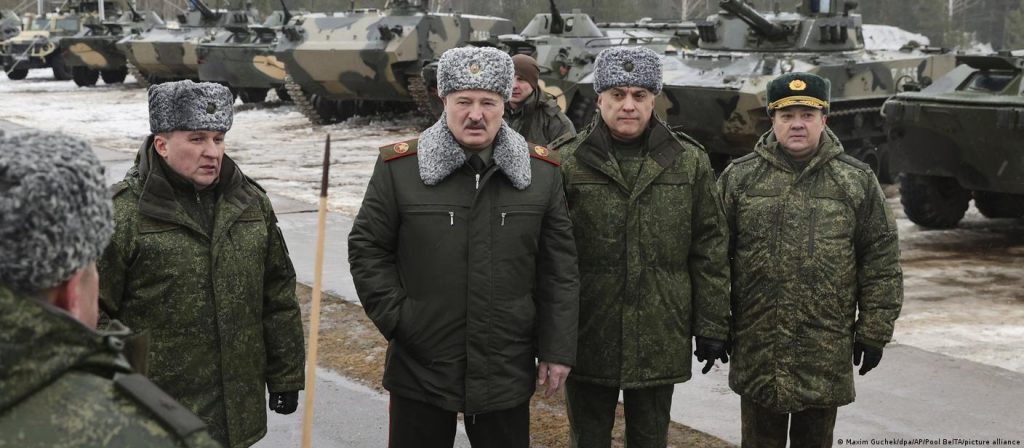
During the full-scale invasion of the Russian occupation troops into the territory of Ukraine, the issue of connecting the Belarusian army was discussed more than once. In addition, almost every week, there are allegations of an impending attack, but most of these allegations are immediately refuted.
According to the latest rumours, actively circulating in social networks and some media, from November 25 to November 28, a joint offensive of Belarusian and Russian troops from the territory of the Gomel region of Belarus to Kyiv was expected. Also, according to the same rumours, a massive missile attack on energy infrastructure facilities was planned for these dates. After previous similar episodes, this attack should lead to a complete blackout for a long time. True, after some time, this “forecast” was postponed for several days – November 28-29.
At the same time, on November 25, the Main Intelligence Directorate of the Ministry of Defense of Ukraine issued an official statement. In it, these rumours were named implausible, and associated their active dissemination with an attempt to force Ukraine to transfer part of the troops to the northern direction, thereby weakening the Southern and Eastern fronts, and also “show the Belarusians the alleged intentions of our state to attack the territory of Belarus, thereby provoking the Belarusians to join the war.”
Meanwhile, on November 20, the Main Intelligence Directorate of the Ministry of Defense of Ukraine reported that the Russian special services were planning fake attacks on Belarus’ critical infrastructure to force the Belarusian military to enter the war in Ukraine.
The Institute for the Study of War (ISW) also continues to believe that the invasion of Belarusian troops into Ukraine is unlikely, which they regularly state in their daily reports on the current situation along the entire line of operations.
On November 24, the day before Belarus’s “attack” on Ukraine, which was actively discussed online, the General Staff of the Ukrainian Armed Forces published a video message to the Belarusian military. It reminded them of the threat of a nuclear catastrophe. Also, it suggested demanding that the political leadership comply with the Constitution and inform law enforcement authorities about suspicious people near critical infrastructure.
At the same time, it is worth noting the unique position of Alexander Lukashenko, who has repeatedly stated that he does not plan to order an attack on Ukraine.
According to a common stereotype, Lukashenko is a complete puppet of Putin and helps him in every possible way to make Belarus part of Russia. However, an analysis of the actions and statements of the Belarusian president demonstrates the growing disagreement in relations with his Russian counterpart. In this case, paying attention to the Chinese factor and its position regarding Russian policy in Belarus is essential.
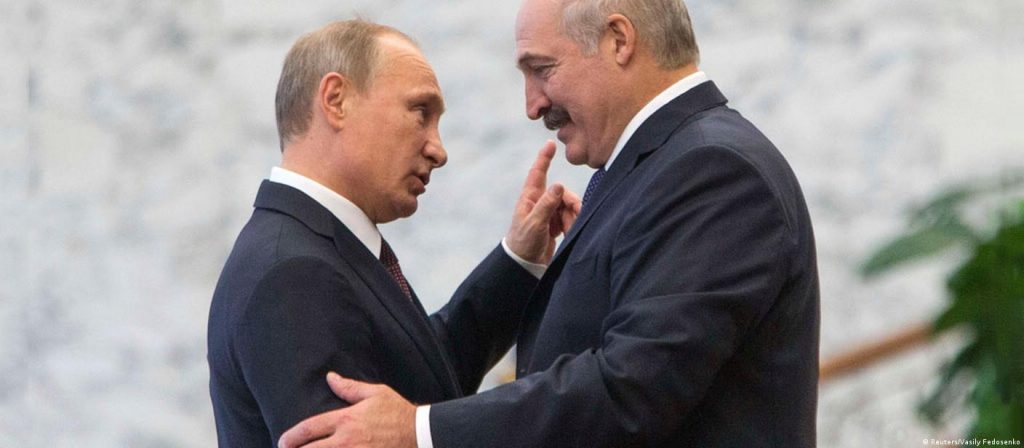
As reported earlier by Ascolta, Russian politicians Nikolai Patrushev (via the figure of the new Russian ambassador to Belarus Boris Gryzlov, his old friend) and Sergei Chemezov (via the Prime Minister of Belarus Roman Golovchenko, a person who is wholly oriented towards Chemezov) have a severe influence on Belarus. However, at the same time, Lukashenko regularly consults on many issues with his Chinese comrades – for example, with Zhao Jiuyan, who, having the status of a trade adviser to the Chinese Embassy in Belarus, communicates directly with Lukashenko in an informal setting. Also, Belarusian sources claim a particular “three-story mansion in the centre of Minsk”, which houses Chinese advisers to Lukashenko.
After the meeting of the presidents of Russia and Belarus in Sochi on September 26, Putin’s attempts to persuade Lukashenko to participate in joint actions against Ukraine under the brand name of the “Anti-Terrorist Coalition” ran into the following. First, the Belarusian leader said he should consult with Chinese leader Xi on this issue. Jinping, since China is a critical friend and leading investor in the Belarusian economy. Thus, Putin’s proposals remained unanswered by Lukashenko. But at the same time, this situation shows that “not everything is so simple” in the Union State.

Lukashenko is still trying to avoid any commitment to Russia to enter the war against Ukraine. At the same time, it is essential to note that Lukashenko does not refuse to provide the Russian Federation with his territory for the deployment of military equipment – as he did not refuse before, which automatically makes him an accomplice in Russia’s terrorist actions.
Lukashenko was going to leave?
Although Alexander Lukashenko’s speech at the Collective Security Treaty Organization (CSTO) summit in Yerevan provoked heated discussions in the media, it was still entirely predictable. They consisted of accusations against the West and Ukraine and appeals to President Vladimir Zelensky to stop the war and sit at the negotiating table. Finally, statements about the inadmissibility of the defeat of Russia and the CSTO will be fraught with consequences for all states of the CSTO.
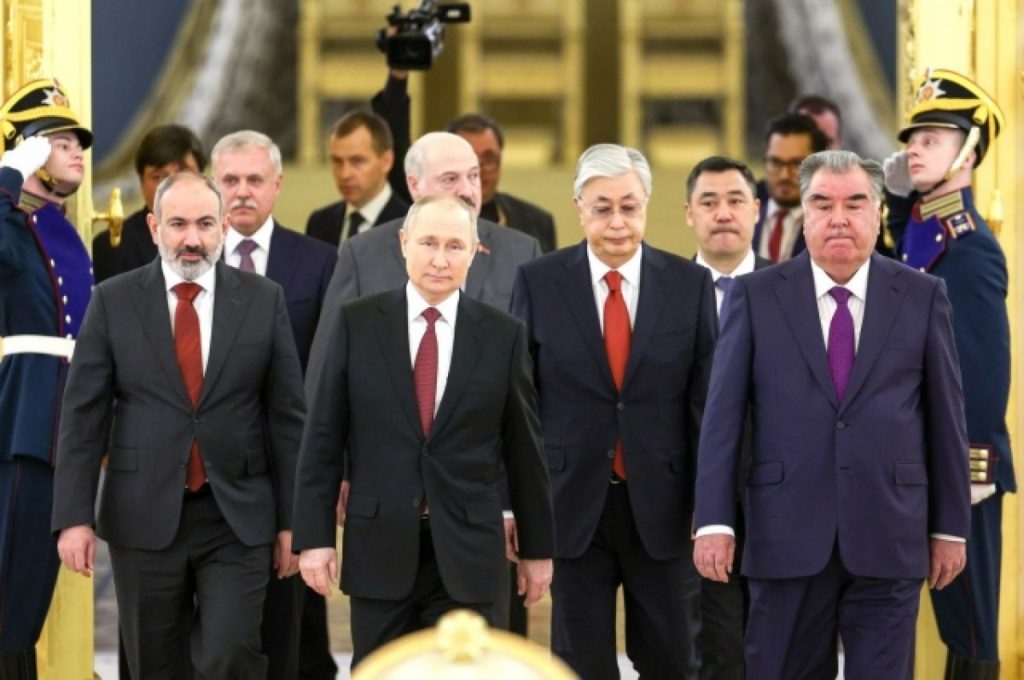
However, after the CSTO summit, many analysts started talking about Lukashenko’s possible imminent resignation. And about voluntary resignation. Allegedly, his regular demonstration of independence from Moscow and the attempt to pursue a balanced policy finally got tired of Putin, who decided to replace Lukashenko with a more accommodating and controlled politician.
Information about the resignation or even the physical elimination of Lukashenko may be a method of psychological and propaganda influence on the leader of Belarus, primarily from Western structures. Lukashenko has always sought to establish a system of balanced politics in the Russia-EU-China triangle, and Vladimir Makei was the creator of just such a system until 2020.
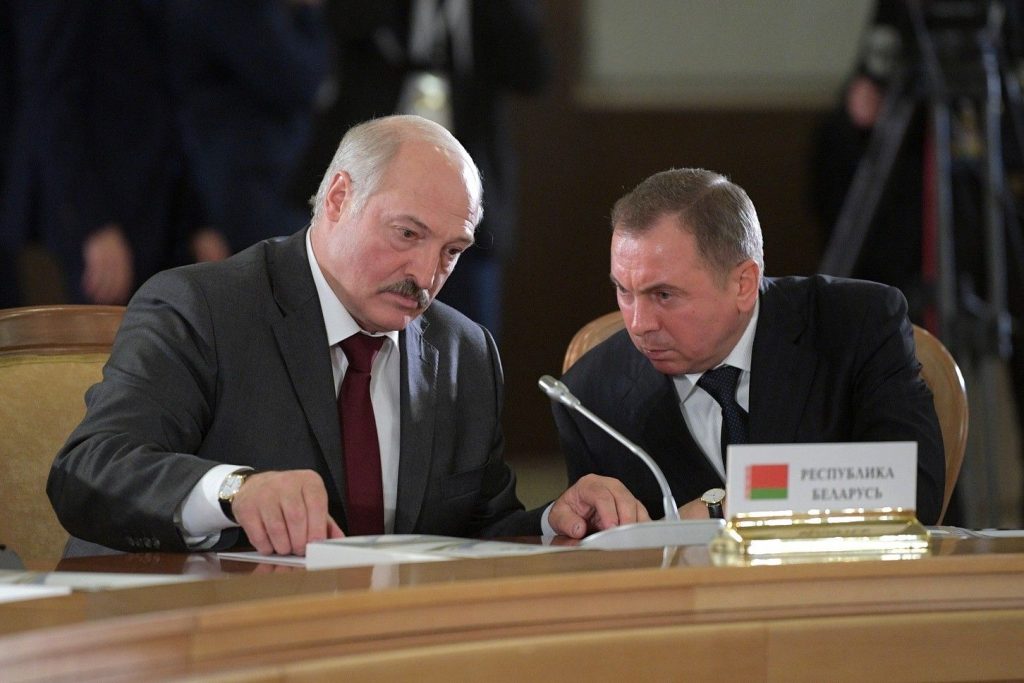
Makei was not the antipode of Lukashenko and did not take an exact post on foreign policy issues, as is commonly believed in expert circles. On the contrary, he was a tool for creating Lukashenko’s foreign policy. There was no particular “Foreign policy of Makei”: Makei knew how to communicate more diplomatically with both Russia and the West. In 2020, Makei supported Lukashenko without a doubt and massively fired from the Ministry of Foreign Affairs everyone who was suspected of even the slightest sympathy for the opposition (even his son from his first marriage).
Lukashenko distanced himself from many former friends as much as possible. For example, in Belarus, they say that Lukashenko has developed a problematic relationship with one of the most influential figures in the power structure in the country, Viktor Sheiman, nicknamed “Tiger”; however, Sheiman continues to influence several economic and shadow processes in Belarus, in particular, the creation of PMCs, the promotion of the interests of Belarus in Africa, the transit of drugs through the territory of Belarus, etc.
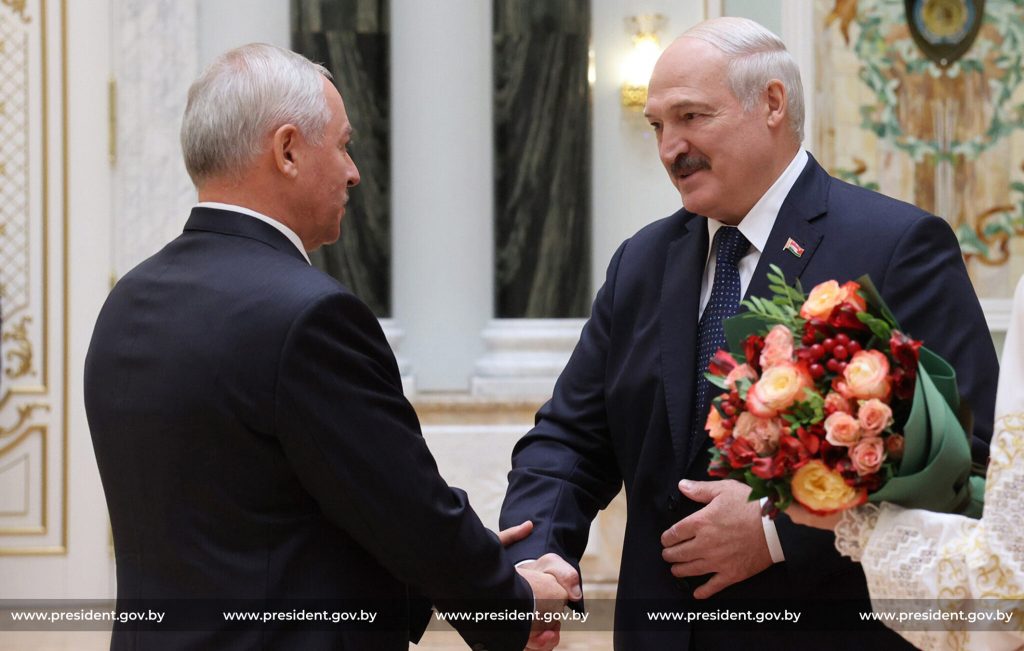
Lukashenko is wary of Prime Minister Roman Golovchenko, seeing him as a “Chemezov man” (especially after the last CSTO summit, at which another Chemezov man, Deputy Prime Minister of the Russian government Denis Manturov, was introduced as a person coordinating the work of the entire military-industrial set of countries of the Organization).
According to Article 15 of the Law on the President of the Republic of Belarus, in the event of the President’s resignation, his functions are temporarily assigned to the Prime Minister. At the same time, Lukashenko is trying to distance himself from General Alexander Volfovich, State Secretary of the Security Council of the Republic of Belarus. It is significant that Lukashenko did not invite either Makei or Volfovich on board during his visit to Yerevan. According to the legislation of Belarus, in the event of the forcible removal of the President, the functions of the head of state should be transferred to Volfovich. Thus, a legal line arises: in the event of Lukashenko’s voluntary resignation, Golovchenko should become acting President in the possibility of a violent removal, Volfovich. The first norm is regulated by law, and the second by a presidential decree.
It is noteworthy that among those whom Lukashenko still trusts is the head of the State Security Committee of the Republic of Belarus, Ivan Tertel.
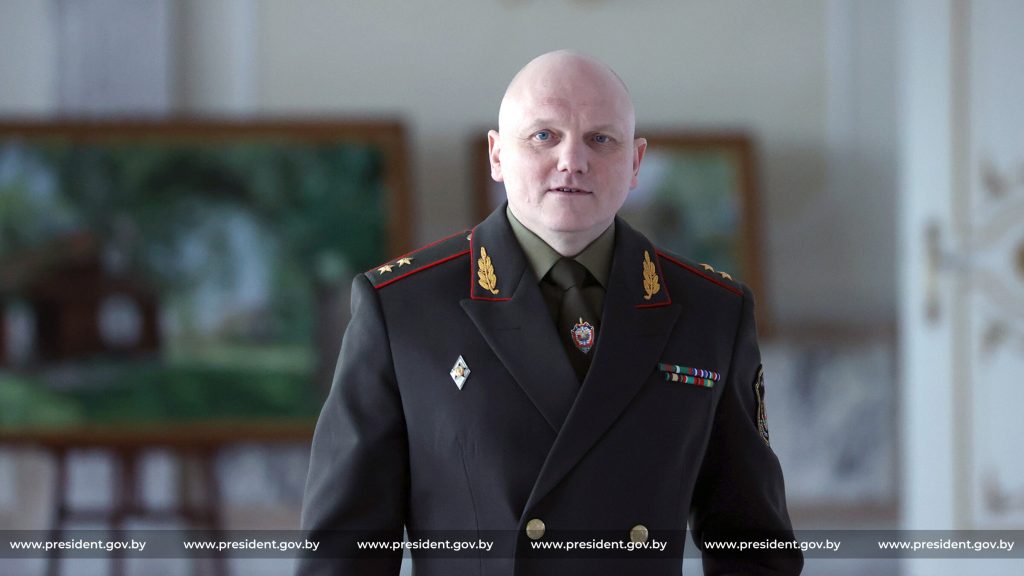
The media have already begun to promote conspiracy theories that Lukashenko could be replaced by Stanislav Zas shortly. Lieutenant General Zas, a native of the Chernihiv region of Ukraine, until 2020 was the state secretary of the Security Council of the Republic of Belarus. He got burned in a corruption scandal (however, a criminal case was initiated against his deputy). In 2020, he was elected Secretary General of the CSTO. On November 23, 2022, he handed this post to Imangali Tasmagambetov. That is, now Zas is out of work. He is openly focused on Russia and would unquestioningly follow the Russian Federation’s instructions. Does the question remain in the technology of bringing Zas to power? This is possible only if Lukashenko again appoints him to the place of Volfovich and thereby signs his death warrant.
Another candidate is the speaker of the upper house of parliament, Natalia Kochanova. Active representative of the oil lobby, Russian by nationality. In May 2020, Lukashenko said Kochanova was the most prepared for the highest position in the state. However, he immediately emphasized: “We do not have the position of president for a woman; the people will not vote for a woman.” Those who know her call her “Ellochka-Cannibal” because of the limited number of phrases constantly used during performances (“You need to be closer to people”, “People are the main thing”, etc.). At the same time, Kochanova does not know how to form a team; she is weak in selecting personnel. An important point: since November 24, Natalia Kochanova has been on a visit to Moscow, where she met with Valentina Matvienko, Sergey Lavrov and several others.
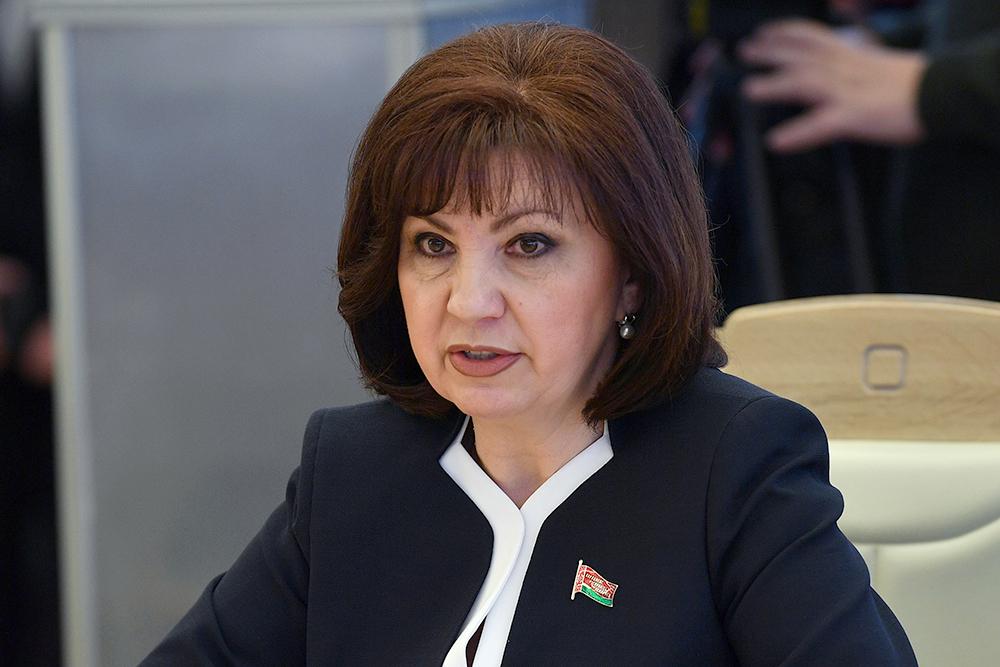
Of course, the possibility of a change of power in Belarus in the shortest possible time is an assumption. Still, at the same time, it is worth noting that there are a sufficient number of factors and interested parties to implement such a scenario.
Death of Vladimir Makei. What is behind the scenes?
Rumours about Makei’s poisoning are unlikely to be grounded. Although even in Belarus, this is a trendy topic (in circles close to Lukashenko, they hint that the Polish special services carried out the poisoning in agreement with the Vatican – Makei’s last visit took place the day before to the papal nuncio). Cadmium often is named among the possible variants of the poisonous substance. However, Lukashenko has already done everything to declare the death natural, and the results of the toxicological examination will be classified, which adds even more fuel to the fire of rumours.
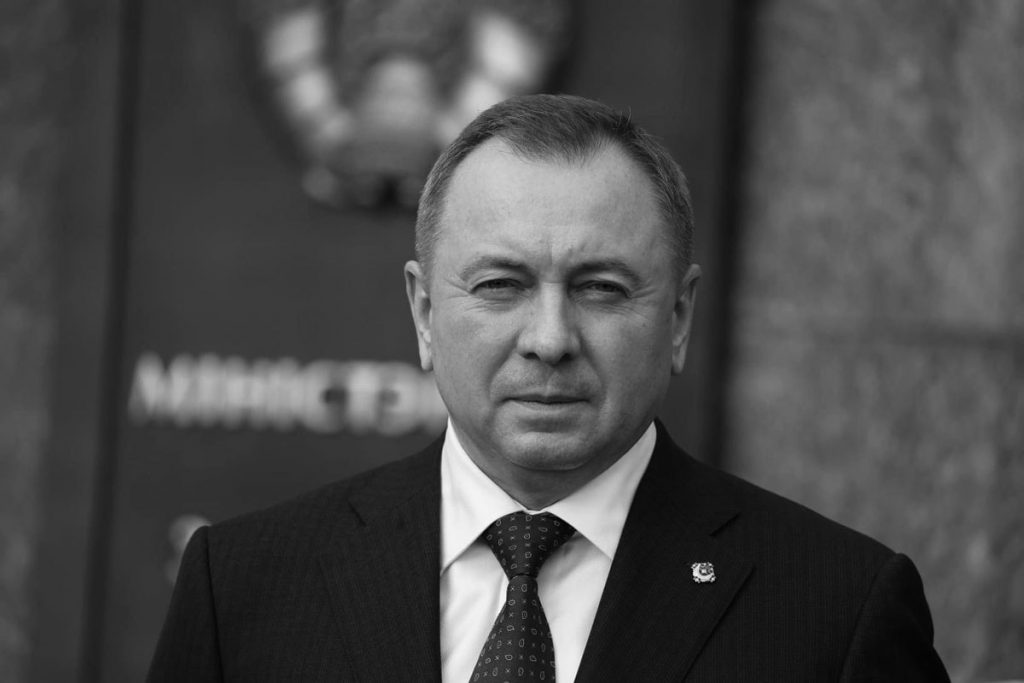
It is known that lately, Makei has spent several gruelling flights and difficult visits – India, Iran, and Armenia. From the latter, he returned on a military transport aircraft with minimum comfort. Also, according to available information, Makei has recently abused alcohol. Against this background, the health of the 64-year-old Minister of Foreign Affairs could be undermined, and death looks natural.
The Belarusian publication Nasha Niva reported that the cause of the sudden death of head Vladimir Makei was a heart attack: “Makei was at home in Drozdy when he had a heart attack. He did not seek medical help in time, as he did not take his condition seriously,” the publication says.
At the same time, one of the Belarusian oppositionists and ex-Minister of Culture of Belarus, Pavel Latushko, said that the death of Belarusian Foreign Minister Vladimir Makei could be a “warning” for Alexander Lukashenko.
“Makei was Lukashenko’s first assistant, as people say, like a general’s coachman … This person had access to the body 24/7, received direct instructions and managed the execution of his instructions. And who knew more about Lukashenko than anyone else in our country,” Latushko said.
At the same time, unlike Lukashenko’s inner circle, Latushko believes that the death of the Minister of Foreign Affairs could have been arranged by the FSB because he planned to attend the OSCE summit in Poland.
“Strange circumstances. This is the fourth case in the history of the Belarusian Foreign Ministry when similar events have occurred. Three foreign ministers, namely Sinko, Antonovich, and Latypov, were dismissed from their posts during their participation in the summits of OSCE foreign ministers. Vladimir Makei planned to take part in the summit of the OSCE Foreign Ministers,” Latushko suggested that Makei could bring “something important” to the summit.
Several Russian Telegram channels also focus on the image of the most pro-Western official in Belarus, who actively promotes the multifactorial policy. True, they associate this factor directly with China.
Thus, the “Image of the Future” Telegram channel, apparently related to the Russian Foreign Intelligence Service, notes that Makei’s death happened shortly after the negotiations between Biden and Xi Jinping “on a new division of spheres of influence”:
“The vector of Belarus in the past few years has been a strategic foothold for NATO during the fall of the Lukashenko regime. And in this sense, it is not only “pro-Russian” but also “pro-Chinese”: China does not need a NATO foothold so close to the new silk road, just like in Kazakhstan. Makei’s death came shortly after Biden and Xi’s talks “on a new division of spheres of influence.” Between the death of Makei, for what reason is not so important in this case, and the victory of the pro-Chinese Kuomintang party in Taiwan, there is a lot of invisible connection. Surprisingly, yesterday, in hot pursuit, and today, in the interpretations around the death of Makei, no one traced the China factor. Or is Belarus no longer a proxy for China in Eastern Europe?”
Russian public figure and member of the Yabloko party Lev Shlosberg believes that Lukashenko’s multi-vector orientation rested on Vladimir Makei.
“Makei was an adamant supporter of the preservation of the sovereignty of Belarus. Under him, the absorption of Belarus by Russia was impossible. Makei was a categorical opponent of the participation of the Armed Forces of the Republic of Belarus in hostilities against Ukraine. Belarus is on the verge of theatrical events. Most likely, not only Belarus.”
The question arises of who can become the successor of Vladimir Makei. To date, three possible figures have been named.
First: First Deputy Head of the Republic of Belarus Presidential Administration Maxim Ryzhenkov. He was in charge of foreign policy issues in the Presidential Administration, was Makei’s opponent in many cases, and previously headed the Foreign Policy Department under the Presidential Administration. The son of a close friend of Lukashenko, Vladimir Ryzhenkov, who led the National Olympic Committee and served as Minister of Sports and Tourism of the Republic of Belarus.
Second: Andrey Savinykh, Chairman of the Standing Committee on International Affairs of the Lower House of Parliament, in 2013-2019 – Ambassador of the Republic of Belarus to Turkey. During Makei’s lifetime, the Savinykhs were accused of being a “British agent”, alluding to the fact that the current head of MI6, Richard Moore, worked with him in Turkey simultaneously. Although a source in Minsk says, “Savinykh is too cowardly to play a double game.”
Third: Sergei Aleinik, First Deputy Minister of Foreign Affairs of the Republic of Belarus (appointed in February 2022). Concurrently – the representative of Belarus to the Holy See. Lukashenko’s contact with influential circles in the Vatican (considered a friend of the Vatican Secretary of State, Cardinal Pietro Parolin). He was the Ambassador of Belarus to the UK for a long time. Interestingly, while in Britain, and as a deputy and later – first deputy minister of foreign affairs, Aleinik remained the special representative of the Republic of Belarus to the Holy See.
Natural or unnatural was the death of Vladimir Makei, but it is evident that a severe struggle for a change of power in Belarus has already begun. At the same time, the resignation or removal of Lukashenko benefits the West and the Russian Federation. The only force that Lukashenko can count on is China – Xi Jinping is delighted with the Belarusian leader: he is predictable, reliable and knows how to keep his word. Lukashenko very seriously consults on many issues with his Chinese comrades – for example, with Zhao Jiuyan, who, having the status of a trade adviser to the Chinese Embassy in Belarus, communicates directly with Lukashenko in an informal setting.
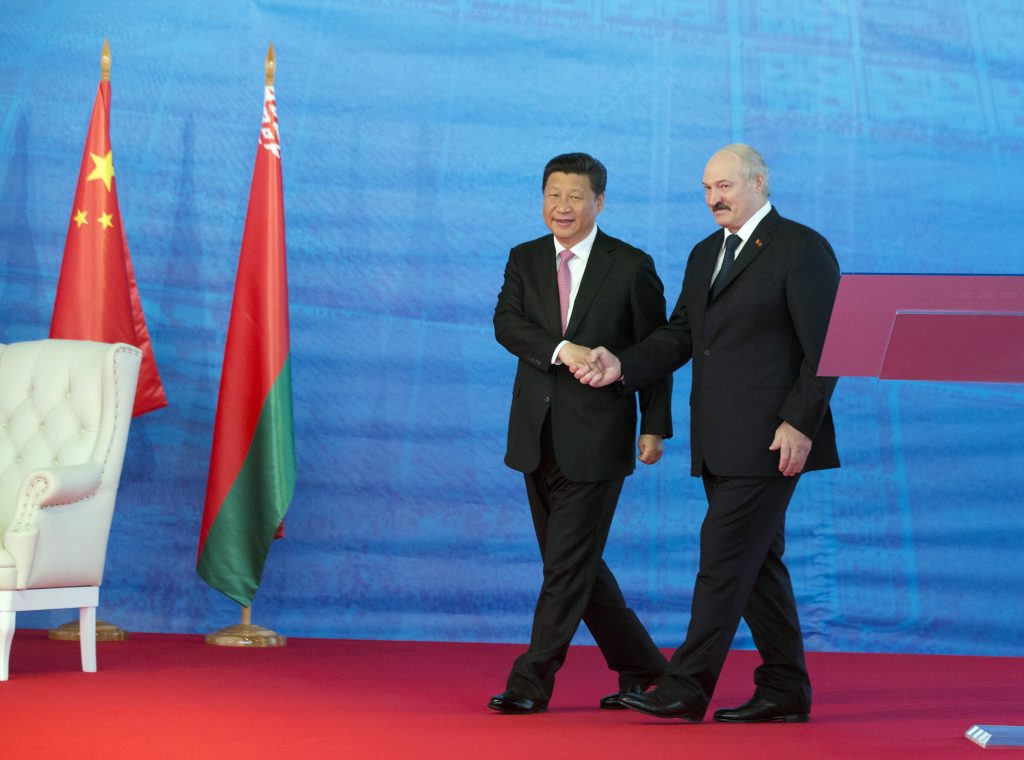
In the near future, we will likely see an intensification of the struggle for power in Belarus, accompanied by harsh informational stuffing. Of course, the death of Vladimir Makei became a catalyst for these processes. At the same time, it is essential to note that other events in Belarus will lie not in the vector of Moscow-Minsk relations but rather in the vector of Beijing-Washington.



The death of Vladimir Makei: a new stage of turbulence for Belarus and Lukashenko | Ascolta
https://girlbosscolorado.com/product/future-girlboss-onesie-short-sleeve-black/